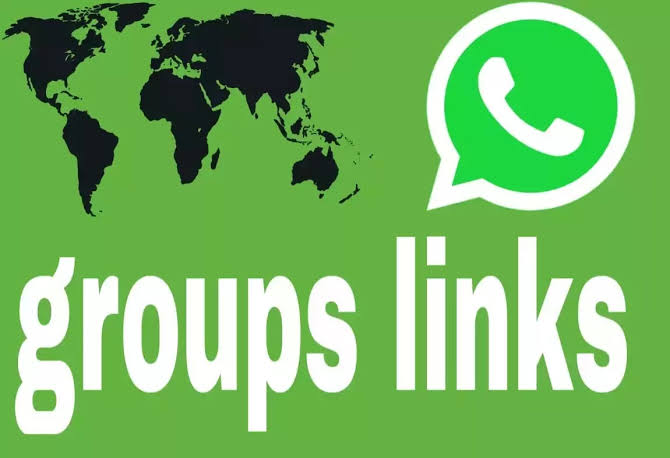~ the absence of Class Contentment ~
The first time I was added to a WhatsApp group to raise money for a bereaved friend was sometime in 2020, I was told that he spent a fortune treating the wife in a foreign hospital for several months before she died. His business was also affected due to his frequent trips abroad. We, therefore, came together to raise money for a befitting burial for the wife and to help the dear friend to recoup some of his financial spending.
It was a good reason to raise funds. And the outcome was massive. I was so glad to be part of that.
A few weeks later, I was added to another WhatsApp group to raise money for another bereaved person, whom I do not know, but most of the names in the first WhatsApp group appeared on the new one. They invariably copied the names/numbers from the other group without checking the relationship between the prospective donor and the bereaved. I opted out of that group when I found out the guy is so rich that he doesn’t need such financial assistance.
Between 2020 to date, I have been added to numerous WhatsApp groups with the sole purpose of raising funds for bereaved friends and people I sincerely do not know and may not have met. I became selective and started ignoring a lot of such groups especially when the bereaved has no reason to depend on public funds to perform the last act of love to the dead.
Interestingly, in the first week of November 2021, I was added to 2 WhatsApp groups, one was to raise seed capital to help a friend who has been out of business for 2 years while the other was to raise money for a friend who was bereaved. The first was financially down and have been depending on friends to feed his family while the latter is a thriving businessman who is also a “big guy” on the street.
A few days after, the businessman who by all standards do not need any form of financial assistance to bury his parent, raised over N12m effortlessly while the financially disadvantaged friend could not get up to N3m. It took a lot of calls, pleadings and preachings for us to eventually raise N6.7m for the friend to start a new business after 8 weeks of setting up the WhatsApp Group.
I called a friend of mine who is a constant participant in a lot of WhatsApp groups to find out why it was difficult to raise money for a financially disadvantaged man than a successful businessman. He told me that when you contribute to wealthy friends, you are sure of getting their financial support if you are bereaved, but the man who is getting help to start a new business may not have anything to offer you. More so, contributing money for a bereaved friend ensure you are among the selected few that will enjoy the choicest wines. They are usually treated better than the chief mourners.
Now if I understand my friend correctly, the major reason for contributing money for a successful person is reciprocity and not out of love or necessity. In other words, they are practising “Isusu” or “daily contribution” in which they take turns to take home what they contributed. Ironically, it is the death of their loved ones that they use as this symbol of class discontentment.
Due to the quest for enrichment, clique, popularity, and other vain attributes, many people in society do the right things in the wrong ways and this has led to a negative norm in the society today.
The concept of class contentment may be a bit subjective, but when you take a deep look at the prevailing WhatsApp groups set up for the sole purpose of raising money for people who do not need such assistance, you begin to doubt if people understand that they are showing distress sign of poverty of the mind.
I’ve known rich people who live in constant fear that their wealth will be lost, or that they must continue to feverishly work to attain more wealth, even though they have more than enough to keep themselves and their families in luxury indefinitely. Likewise, I have known people who are extremely content with little more than a roof over their heads and enough resources to keep them from starving. The difference between the two is contentment.
I consider contentment to mean satisfaction with one’s life situation. It is a lot easier to be a struggling businessman and be happy than to be rich and be happy. The rich expect more gifts from the poor than they share with the poor. Ask around, the highest donors in most WhatsApp groups are not richer than the beneficiary.
So, with regards to this subject matter, it would seem reasonable to think that there is a greater level of contentment among those who manage to get a roof over their head than those who have gotten to a point where they no longer need to struggle from one day to the next, just to survive. Perhaps contentment is something to build oneself, not something achieved or obtained.
I have studied the concept of raising money for a rich man to bury his parents and came to the personal conclusion that it is because when we have things, we don’t notice what we have, we only notice what we don’t have.
I have no problem with fundraising if It is a voluntary act of giving and helping others without expecting anything in return. And it must be tailored in favour of those who need financial assistance.
Any fundraising which is similar to what is happening around us today in various WhatsApp Groups is simply a turn-by-turn “daily contribution”, which I have already excused myself from long before now.
By the way, I must have saved about N1m since I opted out of the scheme. And in the spirit of St. Valentine Day tomorrow, I’m identifying Charles Ogbu (Leave No One Behind), Agbalanze Bube (De Rubies of Care & Compassion) and Praise-Legend Onwuachu (who promised a widow laptop) as the beneficiaries of this savings. They have done more to put smiles on the faces of the poor than me and my rich friends.
Happy Valentine’s Day to you all.
©️Don Ebubeogu








